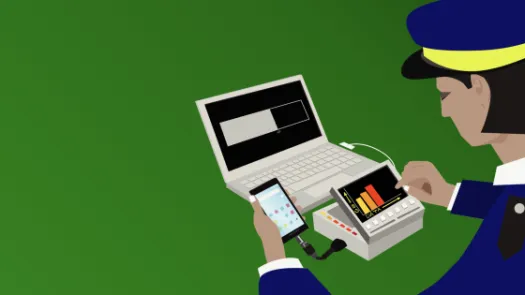
Use of mobile phone extraction tools by law enforcement in Argentina
Our partners, Asociación por los Derechos Civiles (ADC), have recently published their research on the use of mobile phone extraction tools by the police and judicial authorities in Argentina.
- ADC's report shows that whilst the use of mobile phone extraction (MPE) tools by law enforcement in Argentina is widespread, there is a lack of guidance and legal safeguards regarding this.
- Specific legislation for the use of MPE tools is needed that would guarantee due process and the right to fair trial when these tools are used in criminal proceedings.
- Judicial officials appear to lack the necessary understanding of the perils of MPE tools and their impact on the right to privacy.

Our mobile phones contain all kinds of data that ranges from photos, videos and emails to information about our health, the places we visit and our leisure time. This data is often relied upon by law enforcement authorities in criminal investigations.
Mobile phone extraction (MPE) tools are used for this purpose as they enable police and other authorities to download content and associated data from people’s phones. These tools are supplied by private companies to security forces and prosecutors to extract and analyse the information held on our mobile phones.
Our partners, Asociación por los Derechos Civiles (ADC), investigated the use of mobile phone extraction tools in Argentina and published a report which explores the reliance on these tools by the Argentinian National Gendarmerie (GNA), the Police of the Autonomous City of Buenos Aires and public prosecutors’ offices.
ADC's report offers a series of recommendations to the judiciary, the legislature and the security forces on the regulation and use of mobile phone extraction tools within a framework that respects due process and the right to privacy.
The report’s main findings are as follows:
- There is a widespread adoption and use of MPE tools in Argentina, and a lack of concrete guidance and legal safeguards regarding that use.
- More transparency is needed in relation to how mobile phone extraction tools work and are being used by the police in Argentina. Reliance on trade secrets or national security by law enforcement are insufficient reasons to avoid providing relevant information and can result in infringement of the right to privacy of the individuals affected by the extracted information.
- Legal safeguards need to be put in place by the State in order to have clear rules about the use of MPE tools. Specific legislation for the use of MPE tools is needed that would guarantee due process and the right to fair trial when these tools are used in criminal proceedings.
- Currently, there is a lack of procedural standards for the operation of mobile phone extraction tools. As a result, parties to court proceedings cannot exercise appropriate control over the presented evidence and may not be able to object to erroneous and/or illegal manipulation during the extraction process.
- Further, there appears to be a lack of information and safeguards surrounding how the extracted data is stored, the length of time for which it is stored and with what companies/authorities it is being shared.
- Judicial officials seem to lack the necessary understanding of the perils of MPE tools and their impact on the right to privacy. They appear to be unfamiliar with the operation of these technologies. As a result, they may be unable to determine if the collection of evidence was made in compliance with the rule of law. It is necessary to train and inform judicial operators on the operation, risks and eventualities of these forensic extraction tools to ensure that the evidence they provide is correctly assessed and that their use complies with due process and the right to fair trial, with all the guarantees for the person involved.
ADC's full report is available on the right of this page.



